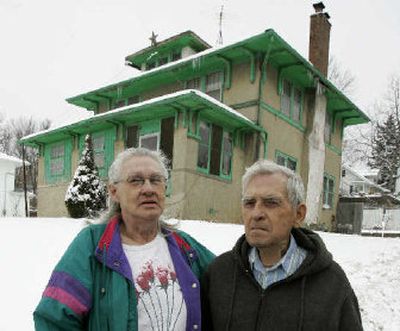Foreclosure fraud on rise

OMAHA, Neb. — After Ivan Eicher lost his job, he and his wife Delores fell several months behind on their house payments. Facing foreclosure, they accepted an offer from a company that promised to help them keep the home where they’d lived for more than 20 years.
Without realizing what they were doing, the couple ended up surrendering ownership of their home.
“It was just a really nice song and dance,” Delores Eicher said.
The Eichers are among the thousands of people who fall each year for offers that promise to help them avoid foreclosure but that leave them with none of the equity they had built up in their property. Their situation matches one of the three common models of foreclosure fraud the National Consumer Law Center has described in a report on the growing problem.
The number of foreclosures reported nationwide soared 42 percent in 2006 to 1.26 million, according to RealtyTrac, an Irvine, Calif.-based company that tracks foreclosures. That creates opportunities for more foreclosure fraud, although the exact number of cases is difficult to determine because they are generally lumped in with other kinds of fraud in crime reports.
The Eichers thought they were taking out a $1,700 loan to help them pay the roughly $4,700 in back payments they owed on their mortgage. They learned too late they had signed their house over to Mid-America Financial Investment Corp. and agreed to lease their home from Mid-America when they accepted that loan.
Although the couple no longer owned their home, the mortgage remained in their names, so they made their $554 payments on the loan through Mid-America, along with monthly fees of at least $100.
Elizabeth Renuart, a staff attorney at the National Consumer Law Center who co-authored the report on foreclosure fraud, said such schemes are popular in areas of the country where home values have soared, but any homeowner who has been paying down a mortgage for many years will have significant equity and can become a target.
A second scheme described in the report involves consultants charging high fees to help homeowners out of trouble but never delivering the promised services. A third involves an agreement where a homeowner knowingly signs over their home and agrees to buy it back over time, but the terms of the agreement make it nearly impossible for the homeowner to succeed.
The Eichers became part of a lawsuit against Mid-America in 2001. They eventually won the title to their home back after the Nebraska Supreme Court ruled in 2005 that Mid-America had defrauded them and 12 other homeowners in the Omaha area.